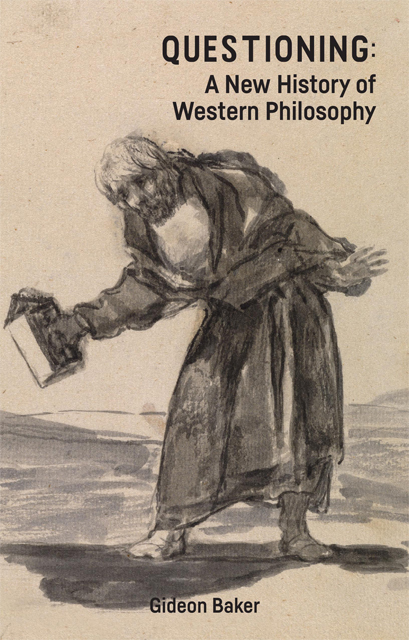Introduction
Published online by Cambridge University Press: 14 July 2023
Summary
THIS BOOK PROVIDES a narrative arc of the Western philosophical tradition as a history of questioning – in particular, questioning of what it is to be, or maybe to become, human. As the twentieth-century philosopher Martin Heidegger observed, human beings are the only beings for whom being is a question (Heidegger 1996: 6).
Of course, Heidegger’s claim, too, is questionable: for one thing, why should being human be experienced as having to question what it is to be human? Is this not the same prejudice that led Socrates to ask, at the dawn of Western philosophy, whether the unexamined life is worth living? This is a question posed to the living by philosophy, but why not put the shoe on the other foot and pose the question to philosophy: from what standpoint outside of life do you presume to question it? Socrates’s question presupposes a lack that the living need to account for, a lack that itself can be put in question.
Seeking to overcome this sense of lack, Nietzsche (TI , ‘Errors’, 7) insisted on ‘the innocence of becoming’ (die Unschuld des Werdens). Apart from refusing to be questionable, do innocents question everything? Is it possible to be innocent while asking everybody and everything for its justification? Nietzsche’s innocents know that, finally, there are no reasons, so what would all this questioning be about? Do we question out of a religious impulse to find the reason behind all things, also known as God? Do we question because we no longer have the strength to say: thus it is and there is no reason why? Did even Socrates, full of such brave questions (he accepted the punishment of death for it, after all), question because he couldn’t see the point of life and secretly wanted to die?
Questioning, being itself questionable, is a veritable black hole. How, then, can we steer clear of the event-horizon of the question which, once we have crossed it, will allow us no return?
- Type
- Chapter
- Information
- QuestioningA New History of Western Philosophy, pp. 1 - 12Publisher: Edinburgh University PressPrint publication year: 2022



